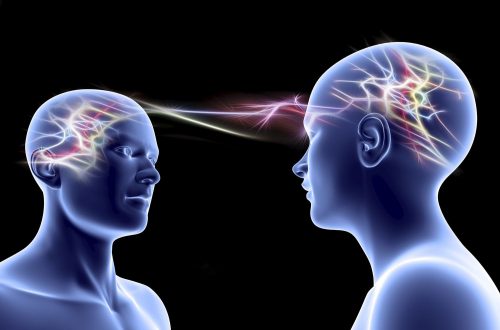I’d like to share a really personal story.
One time, a boyfriend and I were fooling around and working towards having sex. The penetrative kind. Typically we were a cooperative couple and the sex we had reflected that. But this time was different. All at once, before I was ready, he launched into me. It hurt a lot. I was confused. How could he misread the moment so badly when usually we communicated so well. I brought it up in conversation: “Love, I’m wondering if you can help me understand something…”
Blind Spot
He apologized, and the talk we had was really instructive. I learned that he wasn’t feeling very well that evening and that was a distraction. He also told me that his adreneline and his ego played a part in his rushing that moment. He even admitted that there was some inexperience involved. This perfect storm of elements resulted in him “going for it” in a big gesture. The result is that he crossed a boundary and hurt me physically. He stopped immediately when he realized my distress.
Wait? Crossed a Boundary?
I remembered the experience as a violation of my boundaries. (Absolutely not a rape, not sexual misconduct, nothing close to it.) But I had an unspoken (and I felt very reasonable) expectation that if we were lingering around the most delicate tissues of my body, he would be mindful of my safety and readiness. And so if that expectation wasn’t met and the result was pain – “crossing my boundaries” is the phrase I would use to describe what happened. It’s like being in an elevator where someone steps on my toe. He didn’t do it on purpose, but that shit hurt and it crossed a boundary. Ouch!
In his recollection, he categorized it as a mistake that he was sorry for. He had my consent for intercourse (true) so why would I bring in the words “boundary violation”? That’s not only harsh, but inaccurate.
Can you see both sides? Aren’t the semantics interesting?
From Mis-Attuned to Attuned
In the past month, I’ve been exploring a theme (here and here) about the fear some men have that they will be falsely accused of a boundary violation. I’m so sorry that ever happens to anyone and am learning how tricky talking about this can be. I don’t have a perfect solution, but I’d like to offer one idea – an invitation to develop attunement. Psychotherapist Richard Erskine defines attunement like this:
“…a kinesthetic and emotional sensing of others…being in their skin, and going beyond empathy to create a two-person experience of unbroken… connectedness…”
If my boyfriend had been more attuned to me in that moment, our sexual experience would have evolved more pleasantly. But beyond avoiding hurting someone, doesn’t attunement sound like a super power? Like some kind of extra sensory mind meld? It is! Looking into this further, I discovered that if you’ve ever had a great therapist, chances are they had mad attunement skills. We can all improve our attunement with some effort, and it’s so worth it. Attunement makes intimacy, friendships and one’s general human experience better. So let’s explore!
Your Emotions
One way to think about emotions is like the range of colors in a box of crayons. One might feel joyful, downhearted, frightened, surprised, elated – there are so many options.

Sadly, many of us have been socialized to stuff our emotions or limit our emotional expression down to just a few. The result is that a range of emotions from frustration, embarrassment, worry or even sadness may all be experienced and expressed as just one: like anger.

The result is a less colorful life. Happily, with effort, it’s possible to expand and grow in this area by developing emotional intelligence. Emotional intelligence is a key aspect of attunement. It can be defined as the capacity to identify, manage and express one’s emotions effectively and with empathy. To learn more about emotional intelligence, a great place to start is Dan Goleman’s classic book. (And men may consider New Warrior Training.)
Your Body
Besides emotional intelligence, another aspect of attunement is awareness of your body.
Many of us live in our heads – thinking, thinking, thinking all the time. Though our analytical brains are amazing, it’s also useful to come back to and value the sensations in our bodies. Let’s practice this right now. Begin by deepening your breath. Breathe right down into your belly.
And now a few questions: How’s it going in that body of yours? Are there places on your skin that are cool or warm? Do you notice areas of your body that are tight with stress or painful? How about comfortable and pleasant?
That’s all it takes to deepen your attunement in your body. Just pay attention more often.
Lymbic Resonance
So how do these emotional and physical interventions help us become more attuned? The answer relates to how our brains work. If you’re like me, you think of your brain as an organ in your head that helps you think, remember how to get home after work and other functions that support you and only you. But neuroscientist Dr. Allan Schore suggests that our brains can also sync up with other brains. The phenomenon is called lymbic resonance. Dr. Schore describes limbic resonance as “a symphony of mutual exchange and internal adaptation whereby two people harmonize their emotional state.” This harmony occurs within the lymbic system of our brains.
When I think about this amazing concept, I remember the movie Avatar. Did you see that one? The native inhabitants of Pandora had deep, intuitive relationships with giant, beautiful horse-like animals.

To bond with these creatures, the Na’vi would weave the braids on their heads with neural cords on the backs of the creature’s skulls. The aesthetic was pure poetry to me and the best visual representation of attunement I can think of.
Attunement Mastery
Putting quality attention on your body and emotions are two ways to deepen your attunement and increase your chances for lymbic resonance. It’s possible to achieve amazing results over time. My friend and business coach Robert Kandell relayed a story to me of hard-won attunement. In his book unHIDDEN, Robert describes how disconnected he felt in his earlier life and his path of transformation. One evening, he was being intimate with his fiance and “had a feeling” that she wasn’t into it. He stopped the action and asked her how she was doing. “I just realized I’m not into it anymore.” Robert’s goal was never to read his lady’s mind, but it seemed – in moments like this one – he was able to do just that. They stopped their sexual play and did something else – trusting that the time would be right another time. They were attuned.

